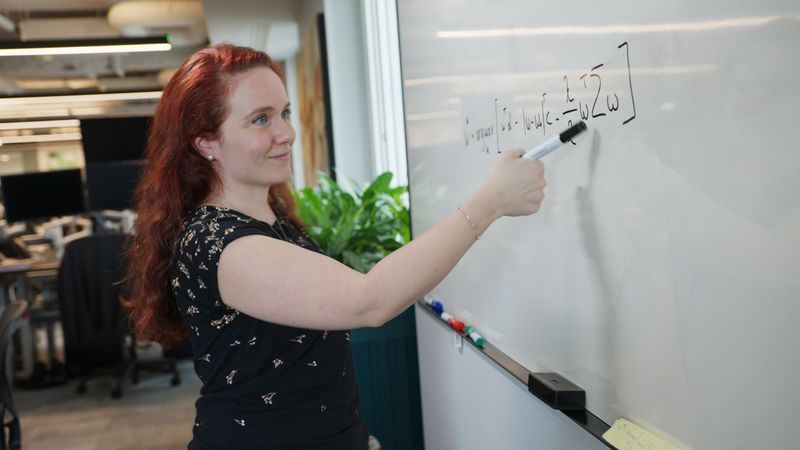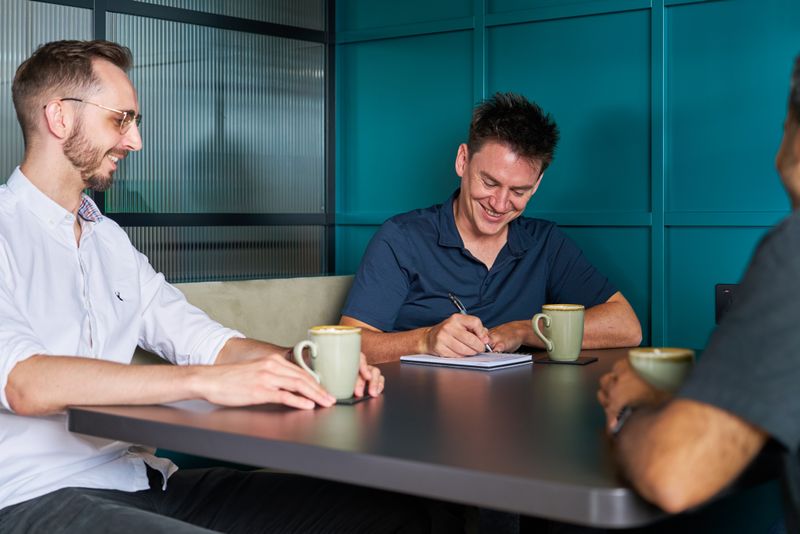Our values
and our work.

Our values
and our work.
Our history.
GSA stands for Global Statistical Arbitrage - a quantitative trading strategy that trades publicly-listed companies in a 'market-neutral' way.
GSA was also the name of a trading team run by our founder Jon Hiscock within Deutsche Bank many moons ago. In 2005, Jon spun the team out and kicked off our firm.
Today, we trade a wide range of systematic trading strategies across all asset classes and regions, with holding periods ranging from minutes to months. One thing that hasn't changed is the tight-knit and friendly atmosphere that makes GSA a special place to work.


Our
values.
Integrity.
Numbers don't lie.
Neither do we.
Being thoroughly decent humans is key to our identity and culture; without this, it simply wouldn't feel like GSA. Our core value of integrity fosters a culture of sound decision-making, responsibility, and trust, embodying what it means to "do the right thing".




Grit and
intellectual
challenge.
Not just solving.
Evolving.
We have a clear vision: to be one of the longest-living high performing quant trading firms. Systematic trading is ever-evolving, and staying successful over the long haul is no small feat. It's not just about being good at what we do now; it's about constant innovation, adaptability, and a determination to tackle problems head-on.

Agency and
collaboration.
Individual power.
Collective progress.
'Agency' speaks to our belief in individual empowerment and personal responsibility, balanced with an emphasis on collaboration. Agency isn't simply about freedom of action — it's about entrusting exceptional talent with the power to influence their own and our collective future. It's working together on a challenge much bigger than any one of us.

Pragmatism.
Dreams and visions.
With deadlines.
Achieving our vision involves tackling tough intellectual challenges with grit and perseverance, balanced with fierce commerciality. In our fast-changing and highly competitive environment, we align our research and actions with real-world objectives, ensuring our approach remains adaptable and practical.

Our
work.
Research at GSA means combining creativity, rigour and attention to detail in the design of systematic trading strategies. Quantitative researchers utilise techniques from many branches of applied mathematics and statistics to evaluate large quantities of relevant data, build statistical forecasting models and develop trading strategies based on those models.
Below are some of the areas our quants work in. Unlike other firms that adopt a single modelling paradigm, we have many parallel approaches run by different teams. Some researchers will end up heading a team working across all the areas below, slotting the pieces together, and ultimately taking responsibility for creating a trading strategy they run and maintain, end-to-end. Other quants prefer to remain specialists in one of these domains, working within a single team or across multiple teams.
Think like us?
See our latest roles.
Featured jobs
in
London
Quantitative Researcher
New York
Quantitative Researcher
London
Quantitative Researcher - Intern
London
Women in Trading & Technology Insight Programme
Join us for GSA’s inaugural Women in Trading & Tech Insight Programme 2026
Over March/April 2026, we will welcome a select group of women to our London office for a 2 day immersive introduction to quantitative research, technology and life at GSA.
Why attend?
- See how mathematicians, engineers and computer scientists turn data into trading strategies
- Tackle immersive challenges, gaining hands on exposure to our work
- Receive one on one mentorship from our trading and technology teams
- Get a taste of our culture and network with diverse individuals
- Gain career advice from the recruitment team
- Accommodation and travel expenses covered by GSA*
Who can apply?
- First year undergraduate or postgraduate women in STEM disciplines from any university globally (e.g: Maths, Physics, Engineering, Computer Science, Statistics)
- Strong problem solving skills and curiosity to learn
- Interest in working within a quantitative environment
Please apply here and we will get in touch with more details soon. Please note, applicants will be reviewed on a rolling basis.
*Visa expenses will be covered on a case by case basis